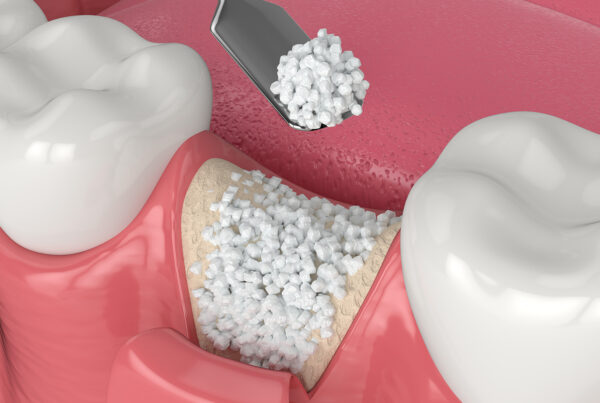Any surgical treatment done on the oral cavity or its surrounding structures, such as the tongue, gums, teeth, jawbones, and other tissues, is referred to as mouth surgery. These procedures are carried out to treat a variety of disorders, address problems with the mouth and teeth, fix structural difficulties, reduce discomfort, or enhance appearance and usefulness.
Dentists, as integral members of the oral health care team, contribute their expertise to the field of oral surgery. While oral surgeons specialize in complex procedures, dentists are often involved in simpler surgical interventions, such as tooth extractions, root canal treatments, and minor oral surgeries. Their comprehensive knowledge of oral health enables them to collaborate effectively with oral surgeons to provide holistic care for patients.
There are many different types of oral operations, each meeting a particular need:
- Tooth Extractions: This type of oral surgery is frequently used to remove teeth that are impacted (such as wisdom teeth), decaying, damaged, or causing overcrowding. This covers operations such as extraction of badly damaged teeth, exposing of an impacted canine, and extraction of wisdom teeth.
- Dental Implants: Dental implant surgery involves inserting artificial tooth roots, or implants, into the mandible to support replacement teeth. People who need denture stabilization or who are missing teeth frequently get this done.
- Corrective Jaw Surgery: Also known as orthognathic surgery, it involves surgical correction of jaw misalignments (such as overbites, underbites, or crossbites) to improve chewing, speaking, and facial appearance.
- Gum Surgeries: To treat gum disorders or improve aesthetics, procedures like gingivectomy (removal of gum tissue), gum grafts (transfer of tissue to cover exposed tooth roots), and crown lengthening (reshaping of gum and bone tissue) are carried out.
- Treatment of Oral Diseases: In order to treat illnesses like oral cancer, cysts, or lesions in the mouth, surgery may be required. This covers operations like biopsies, tumor excision, and reconstructive surgery following cancer therapy.
- TMJ (Temporomandibular Joint) Surgery: To relieve discomfort and enhance jaw function, surgical interventions such as arthroscopy or joint replacement may be explored in cases of severe TMJ diseases that do not respond to non-surgical therapy.
Oral surgeons, often called maxillofacial surgeons, undergo considerable training beyond dentistry school to specialize in surgical treatments relating to the mouth, jaw, and facial tissues. They are usually the ones performing these surgeries.
The particular oral health problem, the patient’s state, and the intended course of therapy all influence the surgical decision. To guarantee the greatest possible result and patient comfort, a comprehensive evaluation, discussion of treatment alternatives, and planning with the oral surgeon are essential before any oral surgery.
 An Overview of Oral Surgeries
An Overview of Oral Surgeries
A variety of techniques are used in oral surgery to treat diseases pertaining to the mouth, jaw, and other structures. Here is a general summary of how oral surgeries are usually carried out, while the exact technique and the demands of the patient can affect how these surgeries are carried out:
- Initial Assessment:
Medical history, treatment specifics, risks, anesthesia choices, and postoperative care are all discussed between the patient and the oral surgeon prior to surgery. X-rays and CT scans are examples of diagnostic imaging that can be used to evaluate and schedule surgery.
- Anesthesia:
The procedure and the patient’s preferences determine the kind of anesthesia that is utilized. Choices consist of:
- Local anesthesia: Numbs a specific area where the surgery will be performed.
- Conscious sedation: Induces a relaxed state or partial memory loss during the surgery.
- General anesthesia: Keeps the patient asleep for the duration of the process.
- Surgery Execution:
For precise operations like tooth extraction requiring incisions, possible tissue removal, and sectioning if necessary, the oral surgeon employs specialized instruments. While corrective jaw surgery realigns jawbones, dental implant surgery necessitates precise jawbone alignment. Gum surgery uses methods including tissue removal and grafting to solve problems.
- Wound Closure and Postoperative Care:
The oral surgeon uses sutures to close incisions after surgery. Instructions are given to patients regarding drug administration, edema, bleeding, food restrictions, and pain management. Follow-up consultations guarantee a good recovery, track healing, and may involve suture removal.
- Recovery:
Recovery periods differ according to the intricacy of the procedure and the patient’s rate of healing. In order to facilitate healing, patients are encouraged to relax and carefully adhere to the postoperative instructions.
During the healing phase, pain control, good dental hygiene, and following dietary guidelines are essential.
To guarantee the patient’s comfort, safety, and successful results, the oral surgeon and their team employ cutting-edge technology, uphold strict safety regulations, and maintain a sterile environment during the procedure. In order to address any issues and guarantee maximum healing, close monitoring and follow-up care are crucial parts of the oral surgery procedure as a whole.
 Exploring the Most Painful Mouth Surgery
Exploring the Most Painful Mouth Surgery
The human mouth, a vital conduit for both speech and nutrition, can become the focal point of necessary yet occasionally uncomfortable surgical procedures. In the realm of oral health, dentistry encompasses a range of interventions performed by both dentists and oral surgeons. Patient perceptions often categorize certain oral procedures as more painful than others, with wisdom tooth extraction, also known as mandibular third molar extraction, being a prime example.
For many individuals, the mere thought of having their wisdom teeth extracted can induce anxiety and apprehension. The discomfort experienced during the recovery phase varies from person to person, but commonly reported issues include swelling, soreness, and other challenges that contribute to the perceived painful nature of the postoperative period. Dentists, equipped with their expertise in oral health and surgical procedures, are instrumental in managing and alleviating these discomforts, ensuring a smoother recovery for patients undergoing such interventions.
The practice of dentistry, involving both dentists and oral surgeons, addresses the multifaceted nature of oral health, including the occasionally uncomfortable but necessary surgical procedures such as wisdom tooth extraction. This collaborative approach within the field of dentistry aims not only to resolve oral health issues but also to minimize patient discomfort during and after surgical interventions, promoting overall oral well-being.
 The Role of Anesthesia in Oral Surgery
The Role of Anesthesia in Oral Surgery
The fear of experiencing pain during oral surgery is a common issue. However, in order to guarantee patient comfort, oral surgeons use a variety of anesthetic techniques. A patient may receive conscious sedation, general anesthesia, or local anesthesia, depending on the intricacy of the procedure and their preferences.
To ensure that patients are pain-free throughout the treatment, local anesthetic numbs the precise location where the surgery will take place. A relaxed condition brought on by conscious sedation frequently results in partial or complete memory loss of the procedure. During the entire process, the patient is rendered unconscious by general anesthetic.
 Addressing the Risks: Can Oral Surgery Be Fatal?
Addressing the Risks: Can Oral Surgery Be Fatal?
Like any surgical operation, there are some dangers associated with oral procedures. There are inherent hazards related to anesthesia, severe bleeding, infection, or adverse pharmaceutical reactions, even though fatalities are exceedingly rare. But thanks to careful preoperative assessments, advanced technology, and highly skilled personnel, these hazards have been greatly reduced.
Although they are uncommon, problems from anesthesia remain a major worry. These hazards may be increased by variables including allergies, unfavorable drug interactions, or underlying medical disorders. Strict guidelines and ongoing observation during surgery, however, can reduce these risks.
 In conclusion…
In conclusion…
Even though people may be afraid about oral surgery, being aware of the processes, the many types of anesthetic, and the possible hazards helps people make wise decisions. Individuals should not be discouraged from seeking necessary oral care due to fear of pain or problems.
Oral surgery is now much safer and more enjoyable because of developments in anesthesia and dental technology. The path of oral surgery can be confidently traveled with conscious thought, expert advice, and devotion to aftercare guidelines.
Recall that each surgical situation is distinct, and consultations with skilled oral surgeons offer individualized advice and insights catered to specific requirements. Therefore, even if having oral surgery may seem overwhelming, a knowledgeable approach can make the procedure go more smoothly and less stressfully.
Transform your smile with Encino Dental Studios! Schedule your appointment today for expert dental care and personalized treatments. Achieve a healthier, brighter smile with our dedicated team. This is where your path to ideal dental health starts!







